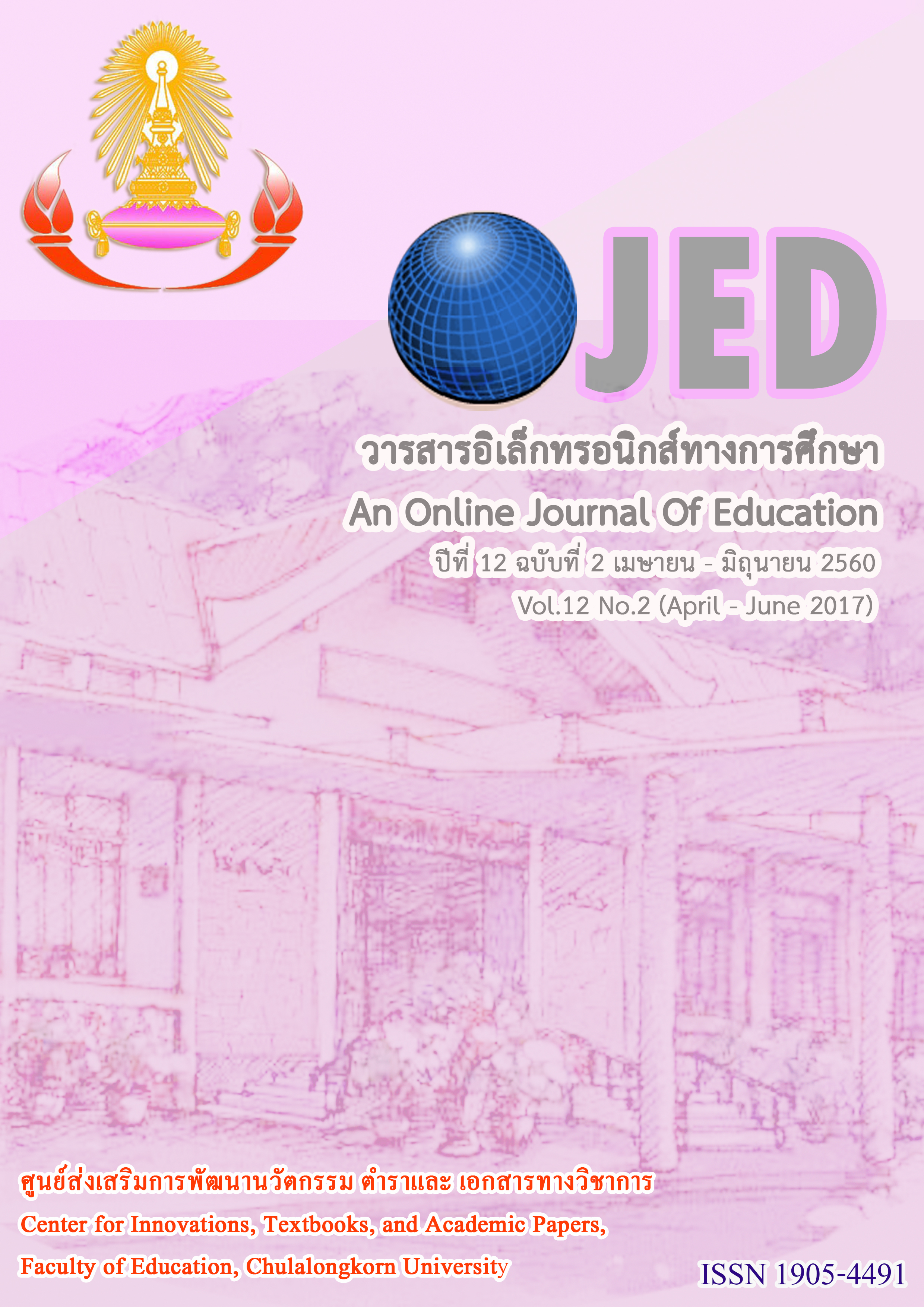ผลของการจัดกิจกรรมการเรียนรู้คณิตศาสตร์โดยใช้วงจรการเรียนรู้ตามการสืบสอบแบบแนะแนวทางร่วมกับการเขียนบันทึกการเรียนรู้ที่มีต่อความรู้และความสามารถในการให้เหตุผลทางคณิตศาสตร์ของนักเรียนมัธยมศึกษาตอนปลาย
Keywords:
LEARNING CYCLE, GUIDED-INQUIRY, JOURNAL WRITING, MATHEMATICAL KNOWLEDGE, MATHEMATICAL REASONING ABILITYAbstract
The purposes of this study were 1) to compare mathematical knowledge of students being taught by organizing mathematics learning activities using guided inquiry learning cycle and journal writing and those being taught by using a conventional approach, 2) to compare the mathematical reasoning ability of students being taught by organizing mathematics learning activities using guided inquiry learning cycle and journal writing and those being taught by using a conventional approach, and 3) to compare the mathematical reasoning ability of students being taught by organizing mathematics learning activities using guided inquiry learning cycle and journal writing between before and after learning. The research was conducted with 56 grade 11th students in the second semester of the academic year 2016 at Mahapruttaram Girls' School. They were divided into two groups, one experimental group with 29 students and one control group with 27 students. Students in experimental and control groups were taught by organizing mathematics learning activities using guided inquiry learning cycle and journal writing and by using a conventional approach, respectively. The experimental materials were lesson plans using guided inquiry learning cycle and journal writing, and conventional lesson plans. The research instruments consisted of a pre- and post-test for mathematical knowledge, and a pre- and post-test for mathematical reasoning ability. The data were analyzed by using arithmetic means, standard deviations, and t-test.
The results of the study revealed that 1) the mathematical knowledge of students in the experimental group were no different from those of students in the control group at .05 level of significance, 2) the mathematical reasoning ability of students in the experimental group were higher than those of students in the control group at .05 level of significance, and 3) the mathematical reasoning ability of students in the experimental group after learning were higher than those before learning at .05 level of significance.




